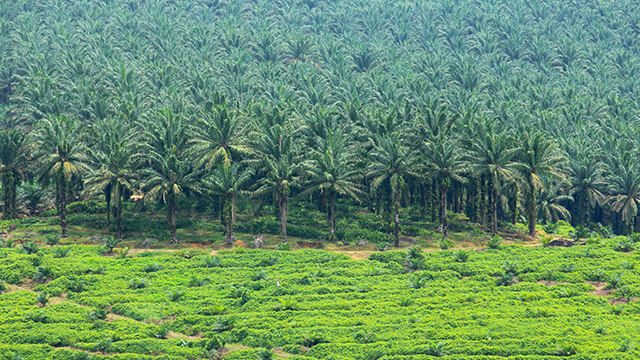SUMMARY
This is AI generated summarization, which may have errors. For context, always refer to the full article.

PARIS, France – A rainforest area the size of Spain will have been destroyed by firms growing consumer staples like palm oil in the decade to 2020 – the industry’s self-imposed deadline to end deforestation, Greenpeace said Tuesday, June 11.
Some of the world’s largest consumer brands – including Nestle and Unilever – had pledged in 2010 to reach net zero deforestation within a decade through “responsible sourcing” of cattle, palm oil, soya and other commodities.
But since that pledge was signed, the pace of deforestation linked to commodities had increased “dramatically” and helped destroy at least 50 million hectares of forest, according to a new analysis carried out by Greenpeace.
“These companies are destroying our children’s future by driving us towards climate and ecological collapse,” said Anna Jones, global project lead for forests at Greenpeace UK.
“They’ve wasted a decade on half-measures and in that time, vast areas of the natural world have been destroyed.”
Since 2010, the area of Brazilian rainforest planted with soya – which is used to feed animals sold for meat – increased 45 percent.
In Indonesia, palm oil production was up 3 quarters since the start of the decade and the footprint of cocoa production in the Ivory Coast surged 80%, said the charity.
A double threat
The 2015 Paris agreement on climate aims to limit global temperature rises to “well below” two degrees Celsius (3.6 Farenheit) and to 1.5C if possible.
To do so, nations must drastically reduce their greenhouse gas emissions, yet those emissions continue to rise year-on-year.
Rainforests currently absorb up to 30% of all manmade greenhouse gas emissions and are vital hotspots of biodiversity, containing plants from which around a quarter of all medical drugs are made.
Cutting them down provides a double threat to the environment: it removes a vital sink for planet-warming gases in our atmosphere and produces more carbon dioxide, methane and nitrous oxide used and expelled by industrial-scale agriculture.
The global meat industry alone is estimated to account for as much as 18 percent of all manmade emissions, and meat consumption is forecast to soar 76 percent by mid-century.
Greenpeace accused firms of failing to follow through on their pledges to reduce the ruinous environmental impact their business plans were having.
“They should be in crisis talks right now, but they’re still trying to grow demand for products that will drive forest destruction even further,” said Jones. – Rappler.com
Add a comment
How does this make you feel?
There are no comments yet. Add your comment to start the conversation.